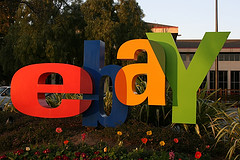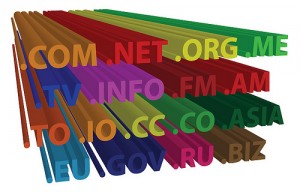Archive for the ‘controversy’ Category
Friday, August 1st, 2014

Photo courtesy of Ryan Fanshaw on Flickr
Applying the GST to online purchases under $1,000 isn’t fair for people who cannot afford to travel outside the country to buy cheaper goods, an eBay executive has said.
While in Sydney for a meeting with the G20 taskforce that is looking at ways to reduce trade barriers — including taxes imposed on online sales — head of eBay’s government relations, Tod Cohen, said enacting the GST on purchases below $1,000 would turn sites like eBay and Amazon into tax collectors.
NSW Treasurer Mike Baird has pushed hard for lowering the GST threshold for online purchases and has talked about taxing global online sales above $20.
“Any time you get down to that type of threshold, you’re discriminating against Australians who can travel and those who can’t travel,” Cohen says.
“We try to maintain an opportunity for people to participate in the global marketplace and one of quickest ways to shut that down is by imposing taxes. There’s no way they’ll drop the threshold for international travellers. We’re not going to see duty-free shut down.”
Cohen says $1000 was a reasonable threshold, given the threshold in the United States was $800 and Europe was about the same.
To read the full story, click here.
Tags: Australia, business, Ebay, GST, online, taxes
Posted in Australia, business, controversy, E-mail & the internet, eBay, Federal Government, GST, internet usage, online business, Online Sales, online shopping, online stores, selling online | No Comments »
Tuesday, June 24th, 2014

- Photo credit; Tristan The Booklight on Flickr
The Sydney Morning Herald offers the following advice for domain owners to help them better protect their domains:
What rights does registering a domain name give you?
When you register a domain name you get a license giving you the exclusive right to use that domain name for a specific period. For .au domains this is two years.
Can someone register domain names that are similar to my business?
Yes they can. You have a license to use the specific domain names that you register. Other parties can register and use similar domain names.
Is this illegal?
No, simply registering domain names that are similar to another business’s domain name, does not breach current Australian law.
However, there are other serious considerations, including:
- Australian Domain Name Authority (auDA) policy applies to all .au domains and all Australian domain holders. Australian domain names may only be registered to Australian businesses. com.au and net.au domain names must be “an exact match, abbreviation or acronym of the registrant’s name or trademark or closely and substantially connected to the registrant”. Failure to demonstrate this connection can lead to the domain name being cancelled, under auDA policy.
- Using another trader’s registered trademark in the registered classes may be trademark infringement and a breach of the Trade Marks Act 1995.
- Australian Consumer Law prohibits misleading and deceptive conduct, including false and misleading representations that one business has an affiliation with another business that it does not have.
- Using another trader’s branding and/or trademarks, even if the branding is not a registered trademark, may be passing off.
How can I protect my brand online?
Legal solutions
- Choose a brand that is clearly distinguishable from your competitors can be easier to protect and defend.
- Include a copyright notice in your website terms that sets out your intellectual property rights.
- Consider registering variations of your main domain name.
- Register your business trade mark to give you the exclusive right to use this trade mark as a brand name for the products or services specific in your registration.
- Check for infringement.
To read more on this story, click here.
Tags: Australia, business, domain, online, security, Sydney Morning Herald
Posted in Australia, business, controversy, domain names, E-mail & the internet, Federal Government, internet usage, online business, Online Sales, online shopping, online stores, selling online | No Comments »
Wednesday, November 6th, 2013

Photo credit; Eliot Phillips on Flickr
Hackers claiming links to international activist group Anonymous defaced dozens of websites belonging to Australian businesses recently.
A group calling itself Anonymous Indonesia posted on Twitter a list of more than 100 Australian sites it had hacked, saying the action was in response to reports of spying by Australia.
The websites were defaced with a message reading “Stop Spying on Indonesia” and are mainly owned by small Australian businesses. They seemed to have been chosen at random.
Australia has been implicated in spying by its role in a U.S.-led surveillance network.
Reports that the Australian embassy in Jakarta was being used for spying prompted Indonesia to summon the Australian ambassador last week. And China demanded an explanation from the United States after the Sydney Morning Herald newspaper reported Australian embassies across Asia were part of the U.S. operation.
To read more on this story, click here.
Tags: Anonymous, Australia, business, hacking, Indonesia, online
Posted in Australia, business, controversy, cybercrime, E-mail & the internet, internet usage, online business, online stores | No Comments »
Tuesday, September 24th, 2013
Brands can be badmouthed, bullied, beaten up and bruised by anyone online but there are ways to fight back and repair the damage.

Photo credit; Joshin Yamada on Flickr
The Australia Business Review recommends that you:
Apologize if the problem has been caused by your actions or those of your staff and put it on your social networks, your website and anywhere else your customers can see it. Make it honest and straightforward.
Remove negative remarks if possible, even if that means having to hire a lawyer to help you remove them from other sites. Remove the ones that you have control over.
Drown the negativity with SEO by burying them with SEO campaigns until they don’t show up on Google’s search results until the 10th page (most people don’t dig this far back into search results).
Re-Direct attention away from the negativity by doing something positive and promoting it, like holding a contest or donating to charity.
To read more on this story, click here.
Tags: Australia, Australia Business Review, bad reputation, branding, business, damaged brand, online
Posted in Australia, business, controversy, E-mail & the internet, Facebook, internet bullying, internet usage, media, online business, Public Relations, search engines, social media, social networking, Twitter | No Comments »
Wednesday, September 11th, 2013
In a bit of news that will make anyone with an email inbox smile just a little, an Australian man who spammed New Zealand businesses has been fined $95,000 for doing so.
Wayne Robert Mansfield of Perth, Western Australia, sent hundreds of thousands of unsolicited emails to individuals ans organisations in New Zealand in 2010. The emails were promoting his company, Business Seminars NZ.
After more than 50 complaints from recipients who said they had no business contact with Mansfield’s company and had continued receiving messages even after unsubscribing from them, the Department of Internal Affairs decided to take legal action against Mansfield under the Unsolicited Electronic Messages Act.
High Court Justice Edwin Wylie imposed a fine of $95,000 and awarded costs of more than $8000 against Mansfield in August 2013.
This wasn’t the first time Mansfield has been fined for spamming.
In 2006, Mansfield and his Perth-based company Clarity1 Pty Ltd were fined a total of A$5.5 million in the Australian Federal Court for sending 70 million spam emails to about 5 million recipients between 2004 and 2006.
To read more about this story, click here.
Tags: Australia, business, online, spam, spammer
Posted in Australia, business, controversy, E-mail & the internet, fine, Spam Act | No Comments »
Thursday, July 25th, 2013
Chinese telecommunications company Huawei Technologies Co. has denied allegations of spying for the Chinese government levied at it by an ex-CIA director.
Former CIA director Michael Hayden made the remarks to the Australian Financial Review, prompting an email statement from the Chinese company that said it is a “proven and trusted” information and communications technology company. The statement came from Huawei spokesman Scott Sykes.
Huawei has been banned from bidding for work on Australia’s National Broadband Network (NBN) and other government-run projects in various countries. The company continues to fight concerns over cyber security after intelligence agencies and security companies traced web attacks to China and Huawei came under strong suspicion.
Contractors in trouble
In other National Broadband Network news, contractors associated with the project continue to be dogged by executive and money losses due to the project.
Amid industry speculation that Silcar has suffered millions of dollars in writedowns while building the network, its NBN project director, Dan Birmingham, has left the role.
Industry sources say Silcar has lost millions of dollars trying to hit NBN Co’s rollout targets.
Birmingham led the contractor’s efforts to connect the NBN with homes and businesses in New South Wales, the ACT and Queensland as part of a 2011 deal worth up to $1.12 billion. He is the latest in a series of high-profile departures from the project.
Earlier in July NBN Co’s long-standing chief executive, Mike Quigley, said he was leaving the company. Key contractor Service Stream’s chief executive Graeme Sumner stepped down in April.
Silcar is equally owned by German engineering giant Siemens and construction contractor Thiess, which in turn is owned by listed contractor Leighton Holdings.
Silcar chief executive Peter Lamell quit his post two months ago.
To read more on these stories, click here and here.
Tags: business, China, Huawei, National Broadband Network, spy, spying
Posted in Australia, business, controversy, Federal Government, national broadband network | No Comments »
Wednesday, July 24th, 2013
The fate of Australia’s National Broadband Network, which aims to bring internet access to the country’s farthest flung outposts, will not be known until the outcome of the country’s federal election is known.
The Labor government and conservative Liberal-led opposition have vastly different plans for the A$37.4 billion for the network (NBN).
A Liberal-led coalition election victory would drastically alter the way the NBN is rolled out, says Melbourne-based RMIT University electrical engineering expert Mark Gregory.
“There will still be activity, but there will definitely be winners and losers,” Gregory says.
While Prime Minister Kevin Rudd’s Labor government initially promised to deliver Internet speeds of up to 100 megabits per second (Mbps) to 93% of premises by 2021 using fiber-optic cables, with the remaining remote locations served by satellite and fixed wireless, those goals have been steadily scaled back.
The project has also been plagued with problems and in-fighting among the companies tasked with building the network.
Liberal Party leader Tony Abbott, on the other hand, promises a A$30 billion fiber-to-the-node network. Under this plan, high-speed fiber would be laid to streetside “nodes” but the final connection to homes and businesses would rely on Telstra Corp Ltd’s ageing copper wires, with much slower download speeds than fiber.
The Liberal Party says this would provide 25 Mbps minimum by 2016 and 50 Mbps for the “vast majority of households” by 2019.
To read more on this story, click here.
Tags: Australia, election, federal election, Labor Party, Liberal, National Broadband Network
Posted in Australia, controversy, Federal Government, internet usage, national broadband network, technology, Telstra | No Comments »
Thursday, August 5th, 2010
Sydney Morning Herald reports today that Ric Richardson, owner of Uniloc, who won a multimillion dollar lawsuit against Microsoft for the use of his patent, only to face the horror of having the decision overturned, is launching further lawsuits against Sony America, McAfee Security, Activision (maker of video games), and Quark, Borland Software and Aspyr Media (software makers).
Mr Richardson contends that his patent has stood up to legal scrutiny, so he is taking these new lawsuits on principle. However, if succesful, the damages awarded will be given to charity.
Richardson, patented the technology designed to deter software piracy in the early 1990′s, and the proceedings against Microsoft have been ongoing since 2003. And yes, Uniloc is appealing the Microsoft decision to overthrow its lawsuit, by alleging bias from the Judge.
Stay tuned, this saga will be interesting…..
Tags: Microsoft, patent, technology, Uniloc
Posted in controversy, technology, Uniloc | No Comments »
Thursday, July 22nd, 2010
The internet has allowed makers and suppliers of ‘legal highs’ which may contain illicit substances, to sell their goods directly to the public online.
Sydney Morning Herald today reports that Australian Customs faces new problems with emerging technology, as it is difficult to monitor, and exposes a potentially wider section of the public to drugs. Some of the pills are simply caffeine-based, whereas others contain ingredients such as ephedrine, one of the precursors of methamphetamine. They are sent through the post and Customs said “many packages are opened and assessed each day”, but not every package can be opened.
Customs does not have the legal authority to shut down online sites selling the drugs but has forced some of the websites to include import restrictions warnings.
Tags: Australia, contact customers, internet, party pills, privacy
Posted in Australian Customs, controversy, illicit substances, party pills | No Comments »
Friday, July 9th, 2010
Prime Minister Julia Gillard has no plans to back down from the plans to develop the controversial web filter in Australia.
However, there may be some modifications to the original proposal by the Communications Minister, Stephen Conroy.
”I understand that there’s a set of…technical concerns about internet speed, and also concerns that somehow this accidentally doesn’t move into taking away legitimate use of the internet,” said Ms Gillard.
The legislation to introduce the web filter is unlikely to be introduced before the election.
To view the full article, click here.
Tags: internet censorship, web filter
Posted in controversy, Julia Gillard, web filter | No Comments »



